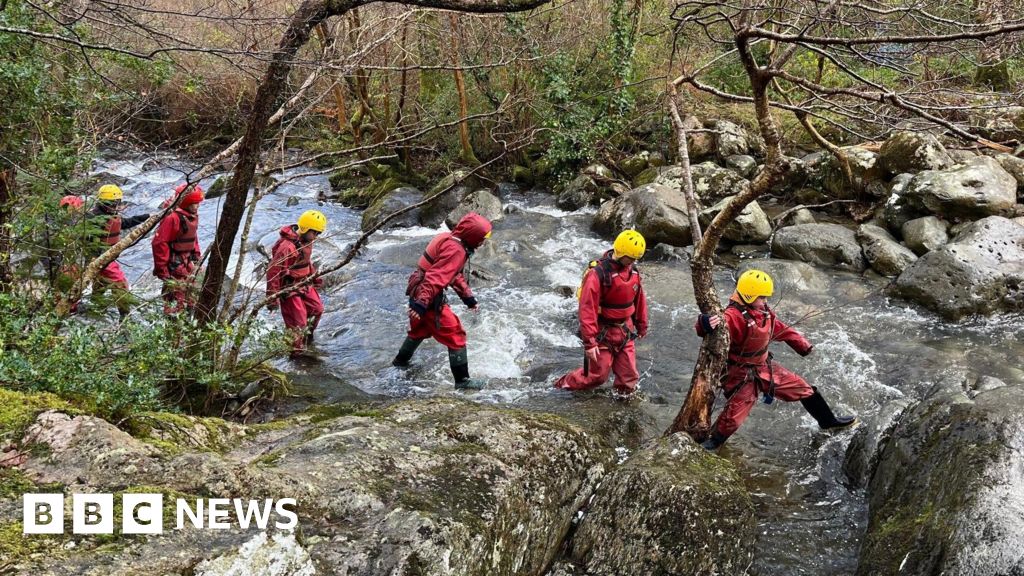
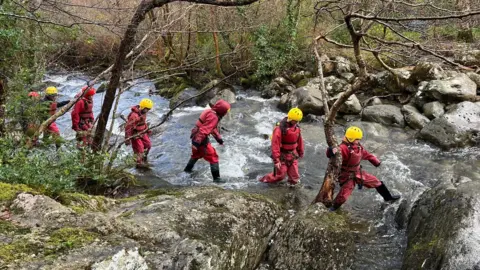 BBC
BBCChildren from low-income families could miss out on school trips if a tourism tax is introduced in Wales, ministers have been warned.
Scouts Cymru said young people could miss out on the “life-changing experience of camps and overnight stays”.
A centre which runs residential courses for schools from across the UK, said a potential levy of 75p per child, per night, could make trips unaffordable for some.
The Welsh government said it had taken a “fair, straightforward approach to application of the levy”.
One teacher, who has been bringing pupils from England to the centre since 1979, feared some schools may choose not to visit Wales to avoid the extra costs.
If proposals are passed, guests at hotels, B&Bs and self-catering accommodation would pay a £1.25 nightly tax from 2027, with a lower rate of 75p for hostels and campsites.
Local authorities would decide whether to introduce the charges in their areas.
Scouts Cymru criticised a potential “two-tier system” which could disadvantage the poorest families.
The organisation said it wanted urgent talks with the Welsh government.
Rhian Moore, chief volunteer for Wales, said: “These simple overnight experiences offered to young people as part of scouting, are often children’s first experience of staying away from home within their local community.
“This crucial developmental milestone could be jeopardised by these additional costs.”

Gareth Davies, manager of the Arete Outdoor Centre in Llanrug, Gwynedd, said many visitors are children from disadvantaged backgrounds – for whom even a rise of a few pounds could make a difference.
The centre already runs a charity, which last month paid for 10 children from low-income families to enjoy a week-long stay.
Mr Davies said: “We’re going to be faced with around an £8,500 bill for the whole year, that either we have to suck up ourselves, or we’ve got to pass on to the parents of these pupils, who are already struggling.
“So it’s certainly going to have an impact on our numbers.”
The centre charges between £290 and £330 for a week-long residential, during which children try activities including climbing, hiking and kayaking.
A seven-night stay would add £5.25 per child.
Mr Davies called for outdoor residential centres to be exempt from the levy, and said: “My biggest fear is pupils not coming because of this increase in price, and therefore missing out on the essential educational learning that we offer.”
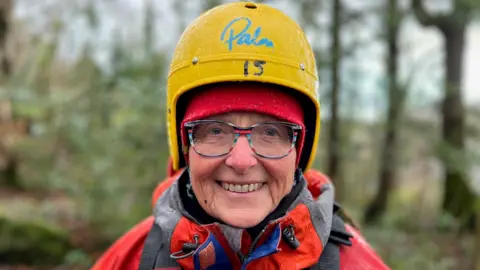
Children from Nunnery Wood High School in Worcester have been visiting the Llanrug centre since 1974.
Former teacher Karen Humphries has accompanied pupils nearly every year since 1979, and said the week-long residential is often one of the highlights of their school lives.
Speaking on a gorge walking expedition with pupils near Dolgarrog, Conwy, she said: “I think for some students, some of them never actually leave Worcester. They’ve never seen a mountain, they’ve never been abroad… it’s an experience that they may not be able to replicate in their future.
“If you meet people in their 40s and 50s, which I do, the week they remember is this week.
“They don’t remember a lot about maths, but they do remember coming away to north Wales.”
Her main concern was that the levy was “going to hit those on the lowest incomes more than others, disproportionately”.
She believed some schools might be drawn to centres in England if costs are higher in Wales, adding: “I don’t think they’ll get such a good educational experience as they get here. I don’t think there’s anything to compare with coming to the mountains of north Wales.”
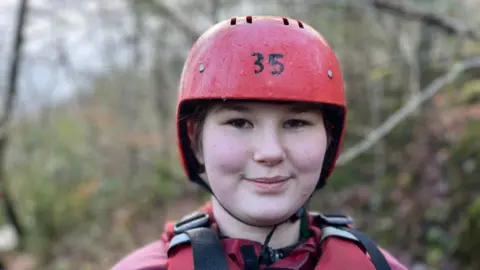
Student Elizabeth, 12, said the idea of a tourism levy was “OK”, but added: “I think for educational purposes there should be an exception, because I think it would reduce how many people go to north Wales.”
Asked his opinion on a potential extra 75p per night, Alfie, 13, said: “If you make it more expensive then it’s going to be more difficult for people to actually go on these trips.”
Ben, 12, said his mother and her two sisters travelled to Llanrug when they were younger, and the school trip had become “sort of like a little tradition”.
He said: “Raising the prices might be a bit overwhelming for people trying to afford going here.”
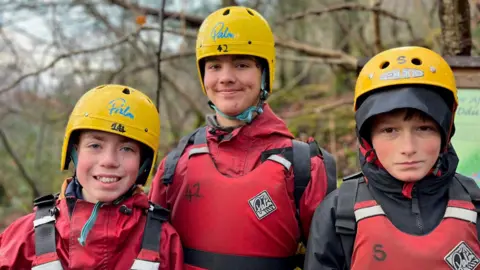
It is not just the outdoor education sector that opposes the levy.
Nicky Williamson, from the Professional Association of Self Caterers for Wales, said: “The whole sector and hospitality in general is against the levy.
“It’s not a good time, and we’re also concerned about the burden on low-income families and smaller businesses.”
She said, as an example, someone spending £300 on two nights in a Cardiff hotel would pay £2.50, plus VAT, whereas a family of four self-catering for a week on a £300 holiday would pay £35 extra, plus VAT.
Wallis George, of Welsh language campaign group Cwmdeithas Yr Iaith, said a tourism tax was “long overdue,” and rejected suggestions it would deter visitors.
“I think those fears are unfounded,” he said.
“The experience of countries and regions across mainland Europe is totally to the contrary, because it is used as an income stream to improve the experience for visitors. But it’ll also sustain the natural environment and the built environment which attracts people to visit in the first place.”
The Welsh government said: “The Bill proposes keeping rates low, avoiding the need for further exemptions and nil rates which would add complexity for providers and visitors.
“As set out in the Bill, any money raised would have to be reinvested in the local area to provide and improve services for visitors and residents.”




